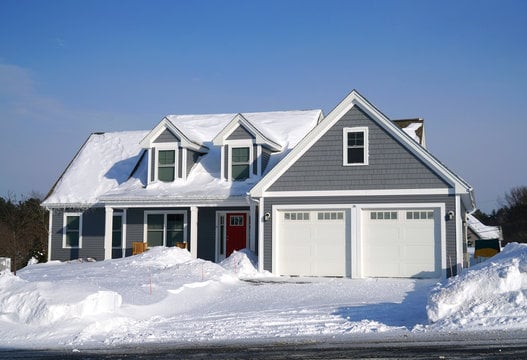Winter brings its own set of challenges for homeowners, and if you’re considering buying a property in a snowy climate, there are important factors to take into account. From the impact of snow on the property itself to the broader implications for daily life, here’s a guide on what to look out for when it snows.
- Roof Condition: Heavy snowfall can put a strain on roofs, leading to potential issues like leaks or structural damage. During your home inspection, pay close attention to the condition of the roof. Check for signs of previous snow-related damage, and inquire about the age and maintenance history of the roof.
- Insulation and Energy Efficiency: Proper insulation is crucial in snowy climates to keep the cold out and heating costs down. Ensure that the home has adequate insulation in the walls, attic, and windows. Look for energy-efficient features, such as double-pane windows and a well-maintained heating system, to keep your home warm and cozy during the winter months.
- Snow Removal Services: Find out about the snow removal services in the area. Inquire about the frequency and efficiency of snow plowing on the streets and sidewalks. Additionally, check if the property you’re interested in comes with a driveway or parking area that is regularly plowed, as this can significantly impact your daily life during the winter.
- Landscaping Considerations: Evaluate the landscaping around the property. Are there trees with branches that might be prone to breaking under heavy snow? Consider the potential risks to the property and your safety. Well-maintained landscaping can prevent damage during winter storms.
- Accessibility and Commute: Snowy conditions can affect transportation and commute times. Consider the accessibility of the property during winter, including proximity to major roads, public transportation, and the condition of nearby streets during snowy weather. This is especially important if you rely on commuting to work or have school-aged children.
- Local Amenities and Emergency Services: Check the availability of essential services during winter, such as nearby grocery stores, medical facilities, and emergency services. Understanding the community’s preparedness for winter weather can provide peace of mind and ensure you’re well-supported in case of any emergencies.
- Foundation and Drainage: Snowmelt can lead to water accumulation around the property, potentially causing foundation issues. Ensure that the property has proper drainage systems in place to prevent water damage. A solid foundation is essential for the long-term stability of the home.
Buying a home in a snowy climate can be a rewarding experience with proper consideration and planning. By paying attention to these key factors, you’ll be better equipped to make an informed decision and enjoy the winter wonderland without any unwelcome surprises. Stay warm and happy house hunting!

